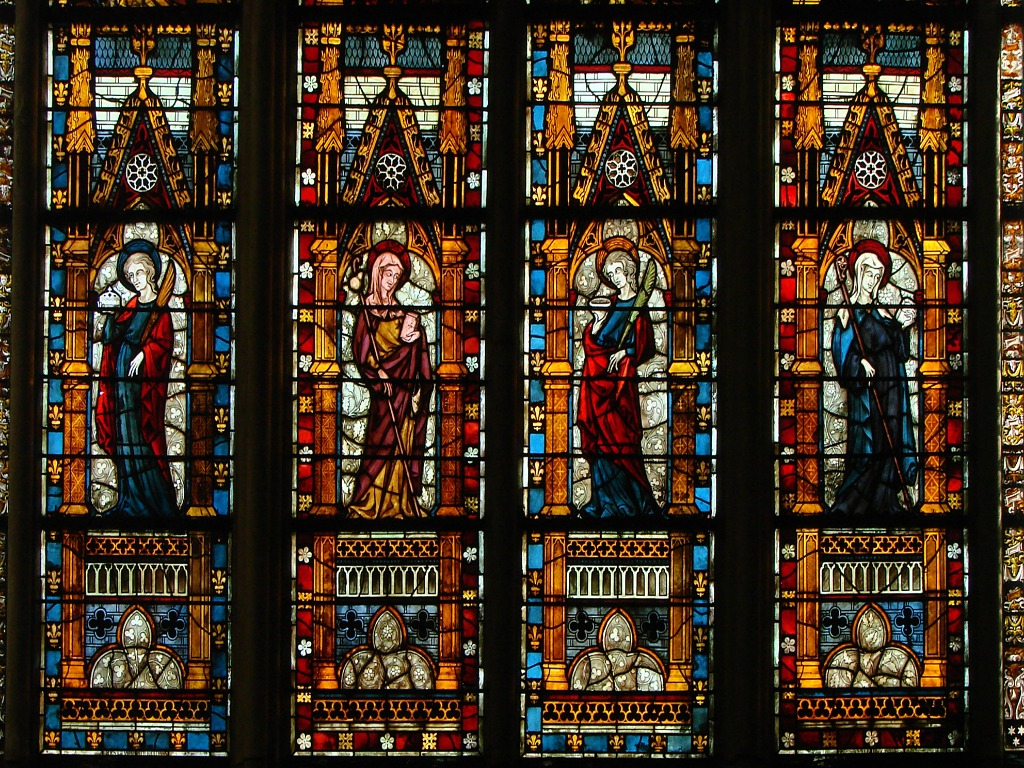
Euthyphro and stained glass
One of the most famous dilemmas in philosophy is Euthyphro’s
dilemma. The topic is the goodness of God. Plato presents a dialogue between
Socrates and Euthyphro. They explore the question of whether something is good
because God declares it to be good or because goodness meets some external
standard. The former suffers from the possibility that the gods (plural in the
case of the polytheistic Greeks) may act capriciously, yet call the results
good. Then, God is arbitrary. The alternative is that the definition of
goodness exists outside of God. But then who sets the standard? An external
standard would be greater than God. However, God is a maximal Being.
One resolution to a dilemma is to search for a third option.
Skeptics cite Euthyphro’s dilemma as evidence against the existence of God. But
there is another way to look at this. God is good because it is his nature. Goodness
is a character attribute. God acts freely, but in a way that is consistent with
who he is. This is not a tautology but an integrity. Goodness is known by its
wholeness and self-consistency. It is free from corruption and impurity. God’s
many attributes include goodness, love, and wisdom. His omnipotent actions
express his personality and do so with both integrity and balance. God is free
to act, but God’s actions are completely good.
Pure glass allows the uniform transmission of all
wavelengths of light in the visible spectrum. Human eyes that gaze through such
glass gain a clear, unfiltered view of their surroundings. The introduction of
impurities can change the clarity and transmittance of the glass. Gold chloride
nanoparticles produce a ruby red color—exquisite in stained glass windows, but
not so helpful for drivers looking for green lights. Impurities containing iron
or chromium produce a green tint, and glass with cobalt oxide admits only deep
blue light. Impurities color the glass.
And it’s not just glass. Diamonds derive value from their
clarity. Control of undesired impurities and desired dopants plays a critical
role in semiconductor and quantum technology. Isotopically pure water is useful
for nuclear experiments. Created in God’s image we have an innate desire to
discover the ideal. We purify silver to remove the dross. Industrial gases like
helium are available with 99.9999% purity (one part per million). Digital
communications technology relays transcontinental messages with error rates
less than one bit per trillion.
We search for essence, for self-consistency, for homogeneity,
and for integrity. Internal inspection reveals this. And we joyfully and
rightly admire results in others that attain such heights. They are beautiful.
Our corporate search for impurities identifies danger and guarantees safety. We
discover pharmaceuticals and narcotics in city sewer lines, implement tests for
clean drinking water, and verify the proper sterilization of surgical
instruments.
The same is true for goodness. Scripture records the
following: “As Jesus started on His way, a man ran up and knelt before Him. ‘Good
Teacher,’ he asked, ‘what must I do to inherit eternal life?’ ‘Why do you call
Me good?’ Jesus replied. ‘No one is good except God alone.’” Mark 10:17-18, BSB.
He is the standard that defines goodness. Discovering the goodness of God is a most
worthy pursuit.